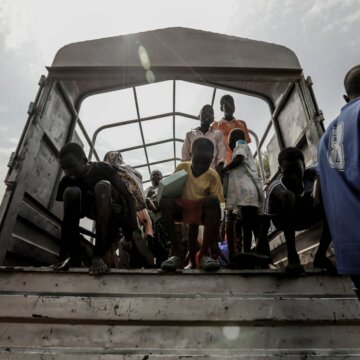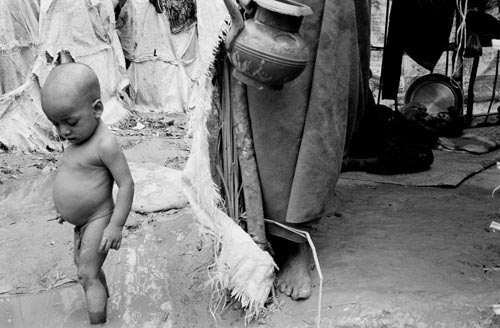- About
- Topics
- Picks
- Audio
- Story
- In-Depth
- Opinion
- News
- Donate
- Signup for our newsletterOur Editors' Best Picks.Send
Read, Debate: Engage.
| topic: | Refugees and Asylum |
|---|---|
| located: | Democratic Republic of the Congo, Angola, Tanzania |
| editor: | Bob Koigi |
A voluntary repatriation programme of Congolese refugees returning home from Angola has continued after being halted for two years due to COVID-19. In 2017, over 35,000 citizens from the Democratic Republic of Congo sought refuge in Angola after political and ethnic violence broke out in the Kasai area of the country. This conflict is one of the endemic insecurities that have so far led to the internal displacement of some 5.9 million people.
As peace and normalcy in the restive area resume, more than 600 Congolese refugees have expressed their willingness to return home, according to the UN refugee agency (UNHCR).
When they return home, they are given repatriation support, which includes cash to help them settle. But the situation in the eastern side of the Democratic Republic of Congo remains volatile and pockets of violence continue to break out.
As the citizens enjoy the fluid peace, neighbouring countries including Tanzania and Angola should have an open-door policy to welcome refugees who are the first victims of such conflict. Even as the repatriation programme continues and more Congolese refugees express interest in going home, the process should be voluntary and should not put pressure on those who have reasons not to. A majority of the refugees have been emotionally and mentally scarred after witnessing relatives and loved ones hacked to death, sexually assaulted and maimed. Such trauma takes time to heal.
Governments and development partners should therefore have a plan to give these refugees the support they need and make sure that their return home is out of their own volition and as smooth as it can be.
Photo by Sam Mann

